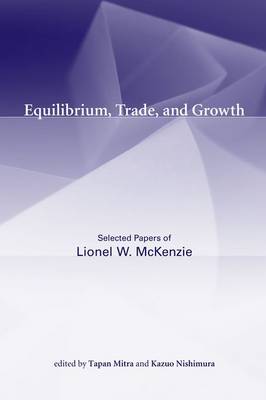The MIT Press
2 total works
Although general equilibrium theory originated in the late 19th century, modern elaboration and development of the theory began in the 1930s and 1940s. This book focuses on the version of the theory developed in the second half of the 20th century, referrred to by Lionel McKenzie as the classical general equilibrium theory. McKenzie offers detailed and rigorous treatment of the classical model, giving step-by-step proofs of the basic theorems. In many cases he elaborates on the individual steps to give a fuller understanding of the underlying principles. His goal is to provide readers with a true mastery of the methodology so that they can derive new results that will further enrich their thinking about general equilibrium theory. Special attention is given to the McKenzie model, in which it is not assumed that the number of firms is given but rather that technologies or activities are available to any agents who can supply the resources they require. The McKenzie model is used to establish the turnpike theorems of optimal and competitive capital accumulation.
Influential neoclassical economist Lionel McKenzie has made major contributions to postwar economic thought in the fields of equilibrium, trade, and capital accumulation. This selection of his papers traces the development of his thinking in these three crucial areas.McKenzie's early academic life took him to Duke, Princeton, Oxford, the University of Chicago, and the Cowles Commission. In 1957, he went to the University of Rochester to head the economics department there, and he remains at Rochester, now Wilson Professor Emeritus of Economics. McKenzie's most significant research was undertaken during a period that saw the development of the major themes of neoclassical economics and the use of fundamental mathematical methods to do so. McKenzie contributed to both aspects of this research program. He helped shape the direction of the field and, at Rochester, influenced generations of future scholars. In 2002, The MIT Press published McKenzie's Classical General Equilibrium Theory, a detailed summary of the model and methodology. This book, collecting his most important papers in the form in which they were originally published, can be seen as a companion to that one.
The many state-of-the-art results achieved in McKenzie's original papers present sophisticated theoretical work that will continue to be important to future developments in the discipline.
The many state-of-the-art results achieved in McKenzie's original papers present sophisticated theoretical work that will continue to be important to future developments in the discipline.

